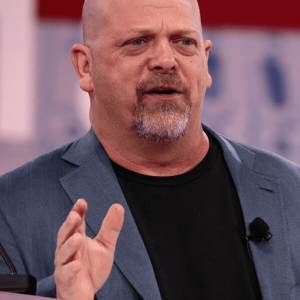
The End of an Era in American Broadcasting
The world of public radio has lost a guiding light. Bob Edwards, whose deep and steady voice became the soundtrack of America’s mornings for over two decades, passed away at the age of 76. His legacy is not just built on the stories he told but on the trust he earned from millions of listeners across the nation. For decades, Bob Edwards wasn’t just a radio host—he was a companion, a storyteller, and a steadfast presence during uncertain times.
Early Life: A Love Affair with Radio Begins
Born in Louisville, Kentucky, on May 16, 1947, Bob Edwards grew up captivated by the golden age of radio. Inspired by legends like Edward R. Murrow, Edwards was drawn to the idea that one voice could reach millions and make them feel informed, comforted, and connected.
His career began after earning degrees from the University of Louisville and American University. A stint with the Armed Forces Korea Network sharpened his broadcasting skills and deepened his respect for disciplined, purpose-driven journalism. His baritone voice and quiet confidence eventually landed him at NPR in 1974, just a few years after the network’s founding.
Video : NPR’s Terry Gross Has a Sick Burn for Bill O’Reilly Walking Out on Their Fresh Air Interview
Revolutionizing Morning News with Morning Edition
In 1979, NPR launched a morning news program that would change everything. Morning Edition wasn’t supposed to be revolutionary, but with Bob Edwards at the helm, it quickly became one of NPR’s most influential broadcasts. Initially hired as a temporary host, Edwards went on to define the show for nearly 25 years.
Each weekday, he delivered news with clarity and compassion, offering Americans a measured voice in a noisy world. From major global events to intimate interviews, Bob Edwards brought depth to storytelling without sensationalism. His work helped NPR become a national institution and set the standard for public media journalism.
Authenticity Over Flash: The Edwards Style
Bob Edwards never relied on theatrics. His broadcasting style was quiet but firm, thoughtful but never preachy. Whether interviewing world leaders or cultural icons, his approach always centered on meaningful conversation.
His regular Friday chats with baseball announcer Red Barber became a beloved segment—not just for sports fans but for anyone who appreciated the charm of two seasoned voices reflecting on life. Those moments highlighted Edwards’ unique ability to turn even the simplest story into something profound.
Navigating Change: A New Chapter on Satellite Radio
In 2004, NPR made a controversial move by removing Edwards from Morning Edition. While many listeners expressed disappointment, Edwards took the transition in stride. Rather than stepping away from the mic, he embraced a new opportunity—hosting The Bob Edwards Show on satellite radio.
This format gave him freedom. No more time constraints. No more sound bites. Just real, in-depth conversations with thinkers, writers, scientists, and everyday heroes. For nearly a decade, he continued to deliver the kind of journalism that matters—authentic, thoughtful, and lasting.
Honoring a Career Built on Integrity
Throughout his impressive career, Bob Edwards earned some of the highest honors in journalism. Among them were the Peabody Award, the Edward R. Murrow Award, and a place in the National Radio Hall of Fame. But perhaps more important than any trophy was the deep respect of his peers and listeners alike.
Video : ‘A Voice in the Box: My Life in Radio’ by Bob Edwards
To this day, countless journalists cite Edwards as a role model—a broadcaster who proved that dignity and truth still have a place in the media world.
The Man Behind the Voice
Beyond the studio, Bob Edwards led a quiet and meaningful personal life. He was married to fellow journalist Windsor Johnston and was the proud father of two daughters. Friends and family remember him for his humility, wit, and generosity. He was deeply committed to mentoring young journalists and often spoke about the importance of preserving ethical reporting in an age of speed and spectacle.
He also championed press freedom and served on boards promoting journalism education and integrity. Edwards believed journalism was a public service, not a performance—and he lived that principle every day.
An Enduring Impact That Lives On
Bob Edwards didn’t chase trends or try to reinvent the wheel. He trusted the power of the spoken word. His voice—measured, calm, and genuine—became synonymous with trustworthy news. In a media landscape often filled with noise, he reminded us that quiet confidence could still make an impact.
Though he’s no longer with us, his influence remains etched in the DNA of American radio. Generations of listeners grew up with his voice, and generations of journalists continue to carry forward the values he stood for.
Final Thoughts: More Than a Broadcaster, a Beloved Guide
Bob Edwards leaves behind more than a resume—he leaves behind a legacy of integrity, balance, and grace. He showed us that journalism could be both strong and sincere. And he reminded us that no matter how fast the world moves, there’s still power in slowing down and listening.
As we reflect on his life and career, we’re reminded that the best voices don’t shout—they resonate. Bob Edwards was that kind of voice. And while his microphone may now be silent, the echoes of his influence will continue to guide, inspire, and inform for years to come.


